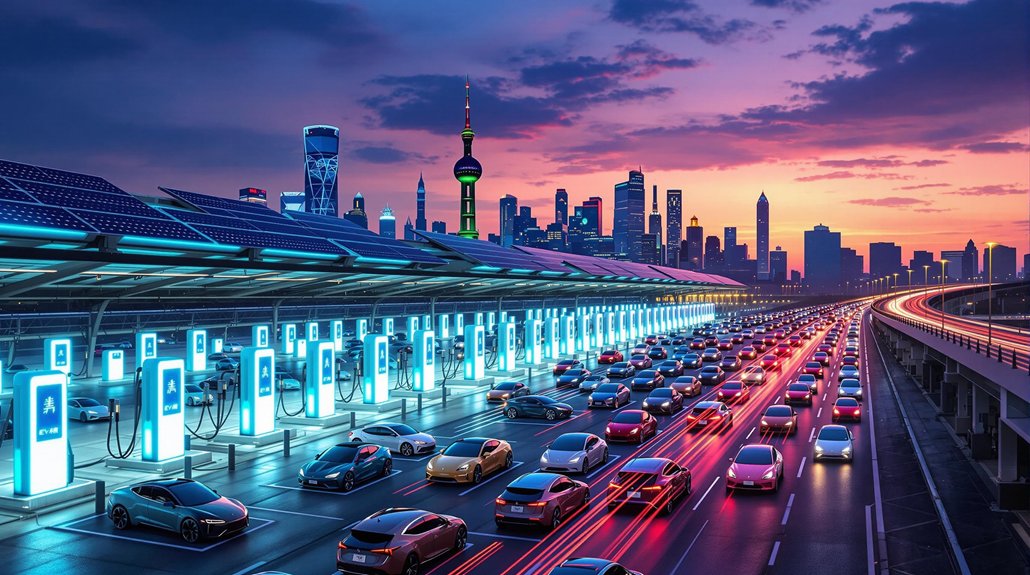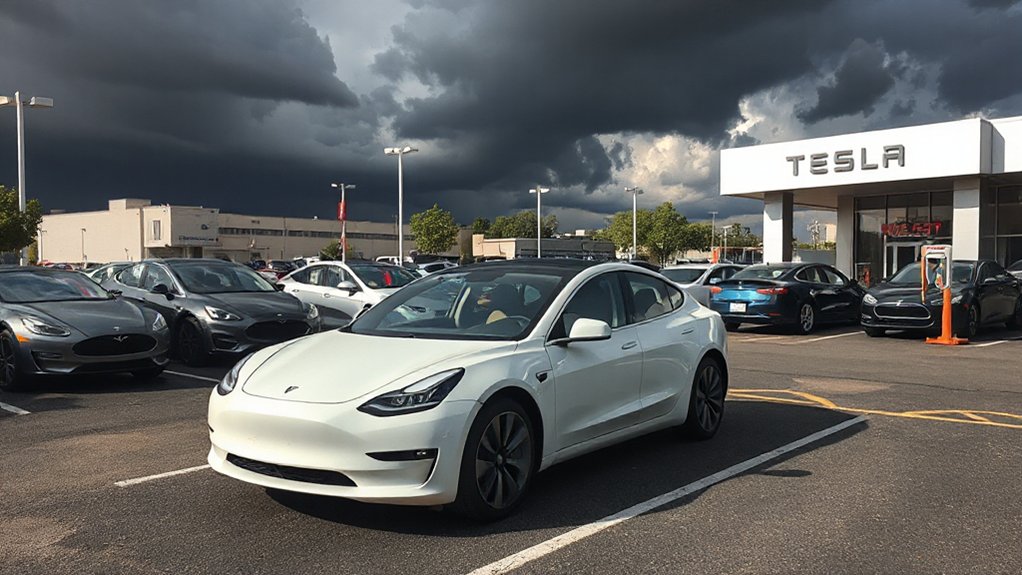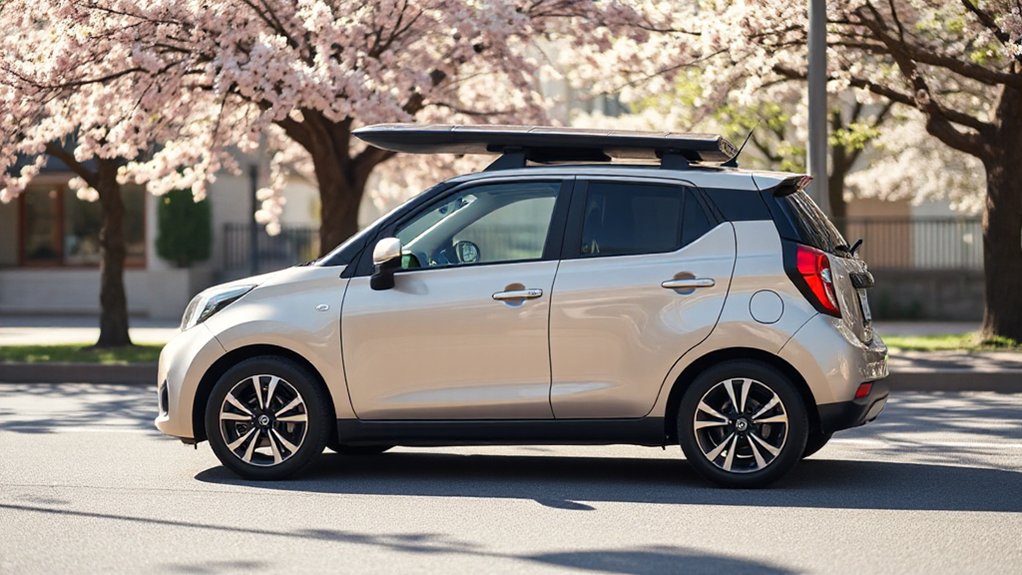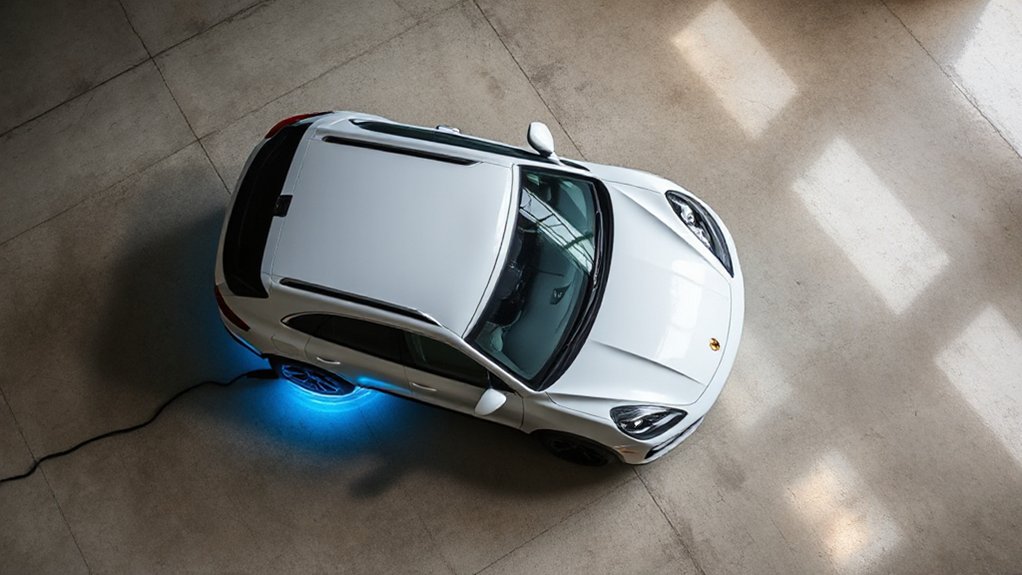China’s state-backed EV transformation has left Elon Musk’s free-market approach in the dust. Chinese manufacturers now control 62% of global EV production, churning out 8.91 million vehicles in 2023 alone. With $230 billion invested in subsidies since 2009, they’ve transformed from automotive novices to world leaders in just two decades. Their battery technology dominates too, with 75% of global production. Western automakers? Still playing catch-up while China races ahead.
While Detroit struggles to adapt and European automakers play catch-up, China has quietly built an electric vehicle juggernaut that’s now dominating the global market. The numbers don’t lie. China produced a staggering 8.91 million EVs in 2023, up 34.2% from the previous year. Chinese manufacturers now account for 62% of global EV production. Not too shabby for a country that had virtually no automotive expertise two decades ago.
How’d they pull this off? Money. Lots of it. China poured over $230 billion into EV subsidies between 2009 and 2023. Buyers’ rebates, tax exemptions, you name it. The government made EVs a national priority while Western automakers were still clinging to their gas-guzzlers. Smart move.
China bet big on electric while the West idled, investing $230 billion when others couldn’t see beyond gasoline.
The battery situation is even more lopsided. Chinese firms produce 75% of the world’s lithium-ion batteries. Companies like CATL and FDB control over half of global EV battery production. Some Chinese startups are even working on batteries with a 2,000 km range. Tesla who?
Chinese consumers are all in. A whopping 97% say they’re likely to choose an EV for their next purchase. Why wouldn’t they? The country has 10.2 million EV chargers as of mid-2023. Infrastructure problem solved.
The future looks electric—and increasingly Chinese. Analysts expect China’s EV production to exceed 10 million units in 2024, with EVs accounting for 44% of all new vehicles sold there. By 2030, that figure could hit 70%. Elon might want to take notes.
Not everything’s rosy, though. Chinese EV brands are struggling to crack Western markets. Trade conflicts and increased scrutiny from the US and EU could throw a wrench in global expansion plans. China’s strategic control over critical raw materials extends to supplying 90% of graphite and 77% of refined rare earths by 2030, giving them unprecedented leverage in the global EV supply chain.
But with a booming domestic market and neighboring Asian countries as potential customers, China’s EV transformation isn’t slowing down anytime soon. The impressive quality improvements in Chinese EVs over recent years have made them increasingly competitive in international markets. The rest of the world is just along for the ride.









